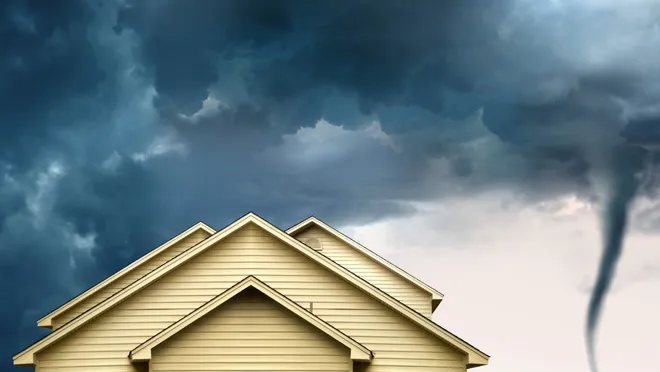Storms can be frightening to deal with, as the magnitude at which they arrive destroys everything in their path and create catastrophes.
The US is no stranger to hurricanes, as about 10,000 thunderstorms impact the country annually, an estimated 10% reaching a severe level. In 1900 the Galveston hurricane was the fifth deadliest Atlantic hurricane to strike the coastline; the historical significance of this natural disaster gets remembered to date.
However, these events remind you that when hurricane season arrives, you must take all necessary precautions to save yourself and your family. Your active interest makes a massive difference when facing the storm head-on. To help you get prepared for dealing with hurricanes, here’s what you need to know:
Get Your House Looked At Before and After The Storm
Before the hurricane strikes, prepare your house for the event. This involves reinforcing the doors and windows in your home to withstand the heavy rain and winds. You must use hard material like plywood to add weight to your doors and windows, and if you can temporarily block them, that would be ideal. Your roof and walls are prone to leaks; therefore, check all the pipes, fix your insulation, and ensure you see no visible cracks.
After the storm passes, you will need to schedule a roof inspection so that a professional can evaluate if your home has any damages or possible leaks that can be bothersome later. Basements can be a massive hazard site, so keep a suction pump at hand and make sure you switch off the lights and fans during the event. Stock up on batteries and fuel and put them in a safe and dry location in your house. While you work on your infrastructure, give the drains a one over, you will need to clear out debris and leaves so the water flows down freely. Likewise, check if you have home insurance that covers all these damages.
Stay Updated With The News
Information can keep you safe. Sometimes a storm may start as a category one and slowly gain momentum by the time it reaches you. That’s why you must stay ahead of the news and learn how the storm is behaving throughout.
Most media channels can provide details on the storm, emergency helplines, and guidelines on what to do if you need to relocate. You also learn about safe houses and shelters if an evacuation becomes necessary. This can help you prepare beforehand, such as packing a small bag or moving out immediately instead of waiting for the storm to catch up to you.

Communicate With Your Family
Your children and partner need to know what’s happening. Keeping them in the dark only endangers them. Therefore talk to them about the situation and ensure they’re on the same page as you. If you have older children, you can delegate them the task of putting the family pet into a cage and packing up their things. If you have an emergency plan, convey it to your family and make sure they understand.
Prepare a first aid kit beforehand and have a list of family and friends you can call if you need a place to stay. Younger children may need explanation, and you must emphasize the circumstance to them. If you have a large family, starting to move early can help. If you leave everything to the last minute, it can get risky for you.
Take Care Of the Trees
Storms are notorious for ripping trees from the ground and flinging them around. Dead branches can break away from the heavy wind and severely damage your house. Start by cutting out and disposing of dead trees.
You may want to level the soil and prevent it from loosening in the wind. Put away all your garden decor, pack up the hose, and cut off the water supply to the grass once the storm starts. You don’t want a pipe bursting or the water from your lawn adding to the flood. You may have to let go of your flowers or pot them and put them in your house.
Mind the Furniture and Your Resources
Patio furniture and more giant outdoor chairs can also add to the chaos. You will have to pack them away securely within your house. The furniture you have on the inside may also need to get reshuffled.
Regarding your electronics, charge your laptop, phone, and tablets before the storm starts. It would help if you considered purchasing power banks since these can provide backup energy. You will need to have a flashlight on you. Additionally, turn off the gas and electricity. If you need these resources, use a backup generator and a camp stove. Bulk buy water and canned food. If you need medicines, inform your doctor. If you have time, get your HVAC units inspected, and if the specialist has particular storm recommendations like linings or filters, ensure you get those done.
Final Thoughts
Storms are chaotic events, often leading to extensive scale damages. Therefore, you need to plan out your next move and act accordingly. Start by evaluating the infrastructure of your house. The leaks, cracks, and reinforcing of the physical structure all need to get looked at. It would help you stay in touch with the news and follow the storm’s movements.
Moreover, talk to your family and update them on the emergency plan you have to deal with this hurricane. Your final touches include clearing your garden and stocking up on the necessary items. Preparation is critical in dealing with any natural disaster.